Is Jamaica Safe? 11 Travel Safety Tips
Is Jamaica safe for travelers? A Jamaican local shares her tips on petty crime, drug violence, LGBTQ+ safety and crime hotspots.
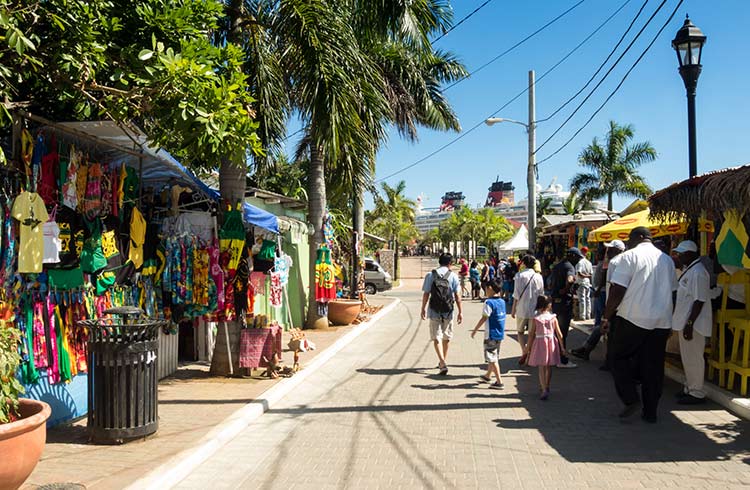 Photo © iStock/Global_Pics
Photo © iStock/Global_Pics
Jamaica is a country too beautiful to be missed and there are plenty of safe places to visit. As a Jamaican local who has grown up traveling solo around my country, I have plenty of advice on how to stay safe. The media often reports a different story, and you may be worried that Jamaica is unsafe. However, most crime against travelers in Jamaica is centered around petty theft.
Here are some tips on how you can stay safe while traveling in Jamaica.
- Petty crime
- Gang violence in Jamaica
- Drug crime in Jamaica
- Jamaican police
- Crime hotspots in Jamaica
- Stay safe in the cruise port towns
- Safety after dark
- LGBTQ+ safety
- Is Jamaica safe for families?
- Is Jamaica safe for solo female travelers?
- Natural dangers
- So, is Jamaica safe?
1. Petty crime in Jamaica
Millions of travelers visit Jamaica each year, staying in resorts, Airbnbs, and villas. One of the key concerns travelers should have on the island is petty theft.
To avoid theft, keep your valuables and jewelry out of sight, don’t walk with your cell phone out, and before you book your accommodation ask if it provides a safe to keep your valuable items in, and if all doors and windows in your room have locks.
While out walking in Jamaica, look out for motorbike riders who can quickly snatch your handbag, phone or other valuables that are within reach.
Remember, most petty thefts are non-violent in nature, but if someone tries to rob you, don’t resist and just hand over the item to avoid getting injured or risking your life.
2. Gang crime in Jamaica
Jamaica has a high crime rate, but much of it is focused on gang violence in the inner city, in communities that you're unlikely to visit as a traveler. Ask your accommodation which areas to avoid if you’re unsure.
3. Drug crime in Jamaica
While it is unlikely you will be a victim of drug trafficking in Jamaica, it is important to keep an eye on your bags and belongings at all times.
As a visitor, you’re more likely to be offered marijuana (locally known as ganja or weed), than you are to be used to smuggle drugs.
However, contrary to popular belief, the use of ganja is merely decriminalized in Jamaica. According to Jamaica’s Dangerous Drug Act, possession of a maximum of two ounces of marijuana will result in a ticket and a small fine. Anything exceeding this amount can result in a hefty fine or jail time.
You cannot leave Jamaica with these two ounces. If any amount of marijuana is found in your possession at the airport, it will be confiscated, you will be fined or jailed, and you will most definitely miss your flight.
Other drugs are illegal in Jamaica and penalties are severe, including jail time.
Your best option is to simply not do drugs.
4. Jamaican police
The government has stepped in to help enhance security in the travel and tourism sector by assigning special police to patrol on foot and bicycle. These police can be seen around major tourist sites.
There has been an extended state of emergency, since January 2020, in several parishes important to tourism. These “zones of special operations” (ZOSO) are often in inner-city communities, away from high tourism areas. The extended state of emergency is to ensure increased levels of security for both locals and visitors on the island.
5. Crime hotspots in Jamaica
Travelers are rarely victims or targets of crime in Jamaica, but there are some areas in Kingston, Negril and Montego Bay that are considered a higher risk.
Crime in Kingston
Communities such as Cassava Piece, Tivoli Gardens, Downtown, Trench Town, Arnett Gardens, Denham Town and Mountain View are sometimes prone to crime but crimes are limited to locals and not targeted to travelers.
Tivoli Gardens, Downtown, and Trench Town have sites of historic cultural importance in Jamaica, and have reputable organized tours that take visitors into the community and are safe so long as you stick with your guide and follow their advice.
Kingston Creative Artwalk offers monthly walking tours around Downtown Kingston, highlighting its colonial history and art influences, and is guided by more than 70 local volunteers.
Culture Yard in Trench Town guides visitors around the community where reggae legend Bob Marley lived, and showcases the influence of Trench Town on reggae music.
Safety in Montego Bay
Areas to avoid include Norwood, Clavers Street, Hart Street, Rose Heights, Canterbury and Flankers. It’s highly unlikely any travelers would visit these communities, but avoid them as they are unsafe.
Is Negril safe?
Considered to be more popular than Kingston, Negril is a small resort town on the north west side of Jamaica. Stick to the well-traveled areas, such as West End, which are generally safe.
Take particular care at night in Negril, and take taxis to avoid walking alone.
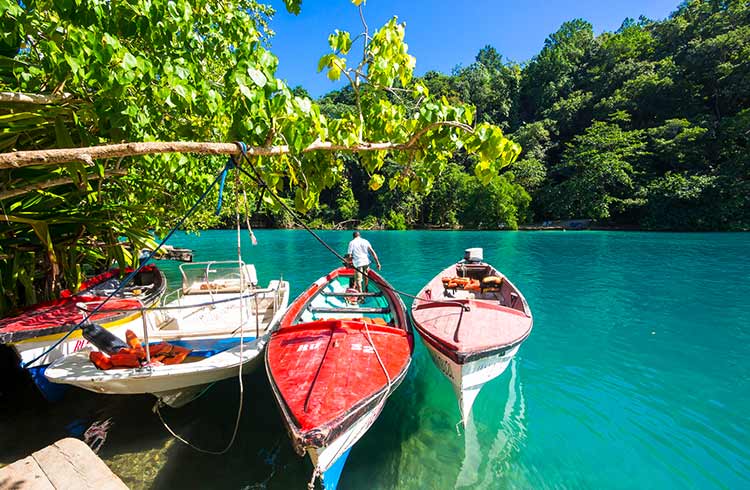
6. Staying safe in Jamaica’s cruise port towns
Ocho Rios and Falmouth are the two main cruise port towns in Jamaica, plus there’s a newly opened cruise port in the historical town of Port Royal.
Tourist police, who are wearing white hats and shirts with black pants, can be found all around the cruise ports. Since they were introduced in 2008, their presence has helped to reduce pickpocketing, petty theft and prevented potential armed robberies. They also act as impromptu guides for new travelers to Jamaica.
While visiting the port towns, keep your valuables out of sight from others and on you at all times.
7. Safety after dark
Jamaica has a vibrant nightlife, especially in major towns such as Kingston, Ocho Rios and Montego Bay. There are numerous nightclubs and outdoor parties that showcase our dance and music culture every night.
But, be aware that walking around, especially alone, after dark is not recommended. If you must walk somewhere, stick to main roads and more populated areas.
It’s better to use a chartered or registered taxi (indicated by a red license plate) instead of walking or using public transportation at night. Here are several Jamaican taxi companies that you can call to charter a cab:
8. Is Jamaica LGBTQ+ friendly?
An important rule to follow, based on discussions I’ve had with local LGBTQ+ activists and friends, is to limit all public displays of affection while in Jamaica.
Jamaica is conservative, and despite its large gay population, there is no noticeable LGBTQ+ tourism scene. There are, however, some hotels and tours in Jamaica which are LGBTQ+-friendly.
9. Is Jamaica safe for families?
Jamaica is a great destination for families. There are lots of family-friendly accommodation options to choose from, but ask before you book to make sure there are kid-friendly facilities. If you’re traveling with children, here are a few tips to keep everyone safe:
- Keep your family close together in crowded areas to avoid separation. You could also introduce a code word to keep children alert and know when they need to stay by your side
- Larger resorts and hotels on the north coast of Jamaica tend to be more family-friendly but you can easily find places suitable for families all across the island.
- Keep constant watch of children at the beach or pool.
10. Is Jamaica safe for solo female travelers?
Jamaica is relatively safe for women to travel alone, but unfortunately, sexual harassment and sexual advances are not uncommon – especially against female travelers.
However here a few quick safety tips to consider:
- Women may be frequently catcalled by Jamaican men. Be firm yet polite – saying you are in a hurry so you can’t stop to talk is usually better than ignoring someone completely.
- Avoid hitchhiking.
- Don’t walk alone at night or in poorly lit areas.
- Dress modestly while out and about.
- Be aware of your surroundings.
- Drink alcohol in moderation. Avoid leaving your drink unattended and don't accept drinks from strangers.
11. Natural dangers
- Hurricane season: the official hurricane season is from June to November but the months of May and October are usually very wet
- Weather warnings: local weather forecasts give adequate warnings and evacuation procedures, however if there’s a hurricane during your visit, make sure to stock up on non-perishable foods (like canned food) beforehand, and stay away from windows during the storm
- Earthquakes: Jamaica is located near two tectonic plates. While the island does not usually experience many major earthquakes, on January 28, 2020, there was a 7.7 magnitude earthquake that occurred 86mi (139 km) north of Montego Bay, which was felt all over the island. A 5.4 magnitude quake struck on October 30, 2023, near Hope Bay in northeastern Jamaica. While there was no reported damage, here are some tips on what to do if there’s an earthquake during your trip.
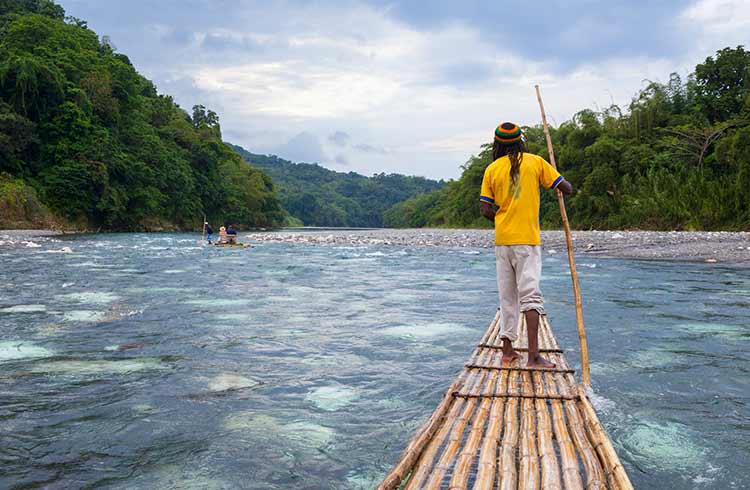
So, is Jamaica safe?
Jamaica is a destination where you should exercise extra safety precautions – be alert not alarmed. Use your common sense and you should have no troubles traveling in Jamaica.
Related articles
Simple and flexible travel insurance
You can buy at home or while traveling, and claim online from anywhere in the world. With 150+ adventure activities covered and 24/7 emergency assistance.
Get a quote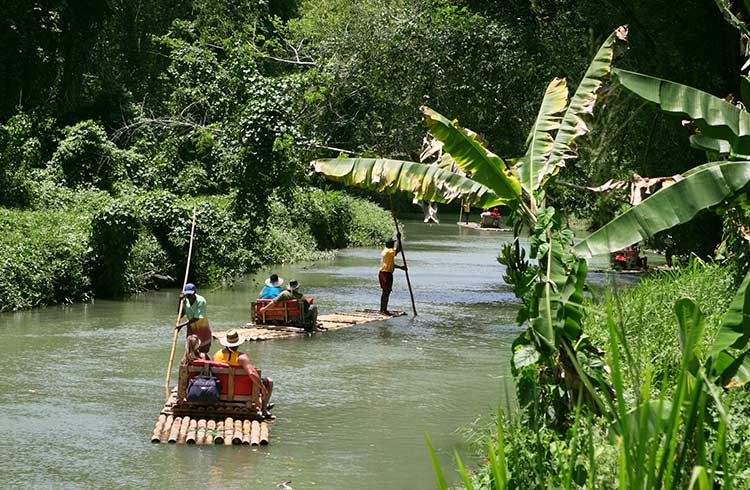
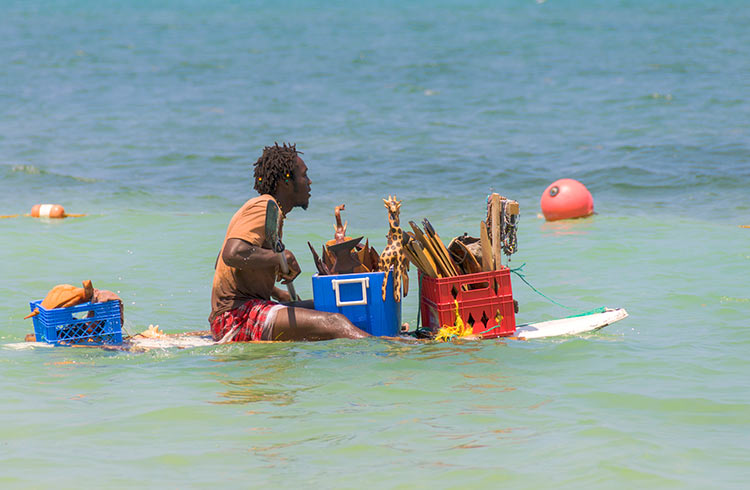
17 Comments